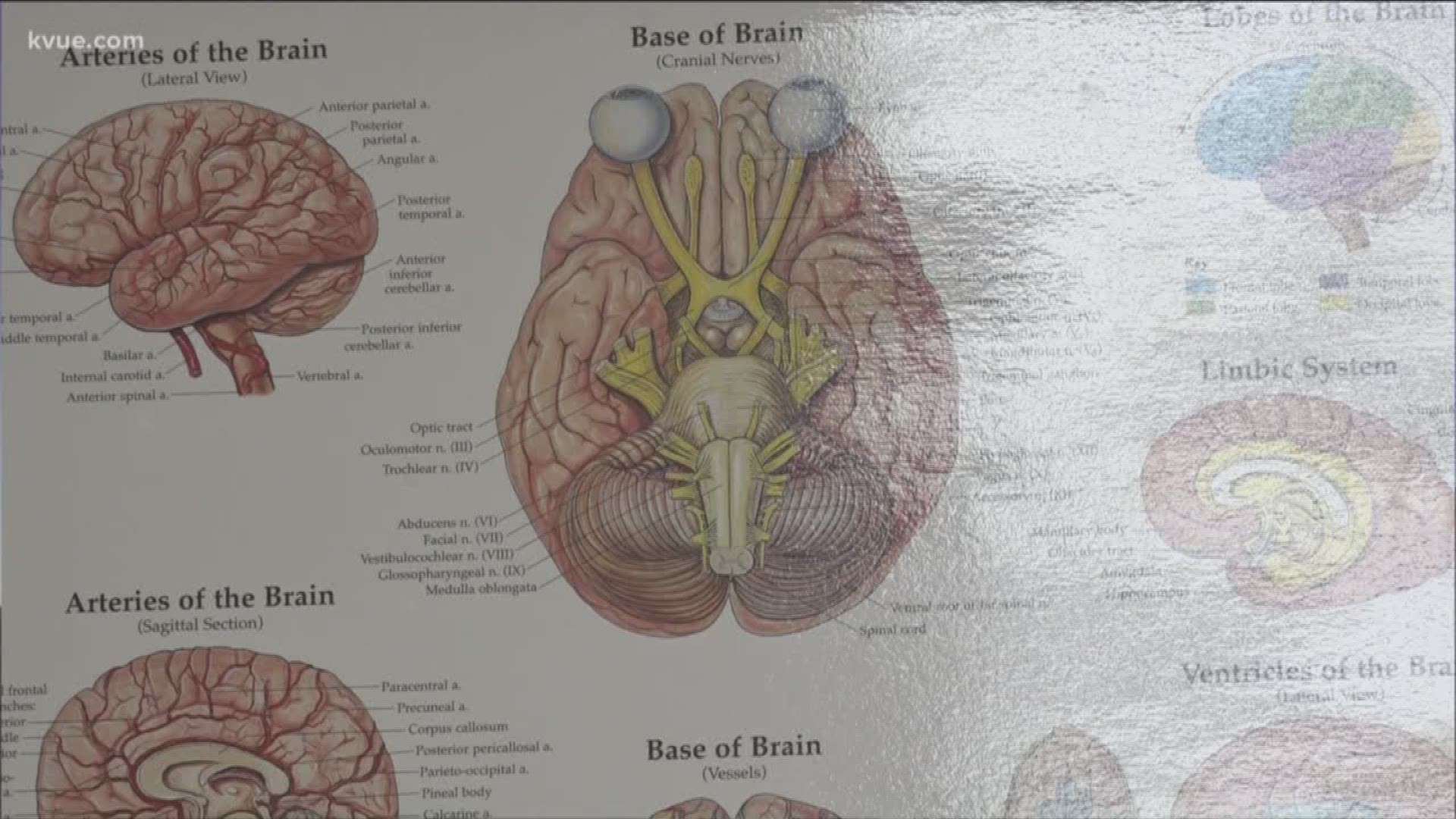LAKEWAY, Texas — A stroke can happen in an instant, even to the healthiest of people.
Central Texas resident Jeff Harris had lost 50 pounds, didn't smoke and had an overall healthy lifestyle when he had a stroke earlier this month. He was getting ready for work when both he and his wife noticed his speech was slurred.
“I stuck my tongue out,” said Harris. “My tongue hung to the left. And immediately she ran out to the car, I ran out the front door and we drove across the street to my doctor's office.”
Harris said people thought he was crazy, “but they immediately caught on once they noticed [his] face was starting to droop."
Harris said because they both knew about stroke symptoms, he was able to get to the emergency room in about 20 minutes, which may have helped with a speedy recovery.
Once at the hospital, his vitals were checked and drugs were administered to ease his symptoms.
RELATED:
“By the time they got me up to ICU ... you have what they call ‘stroke watch,’ where they check you every hour,” he said.
This stroke happened in May, which also happens to be Stroke Awareness Month.
Dr. Blake Freeman, a neurologist with Baylor Scott and White, said some of the more common signs and symptoms of a stroke include:
- weakness
- paralysis on side of the face, arm or leg
- loss of sensation or numbness
- difficulty getting words out or change in quality of speech
- vision changes
“Any of these that happen suddenly can be signs and symptoms of a stroke,” said Dr. Freeman.
The doctors at Baylor Scott and White have a way to help you remember the signs and symptoms of stroke with the acronym FAST:
F: face and any facial asymmetry
A: arm weakness or paralysis
S: speech and speech changes
T: Time to call 911
Baylor Scott and White also has a "Stroke Quiz" that allows people to test their risk for a stroke.
PEOPLE ARE ALSO READING:

